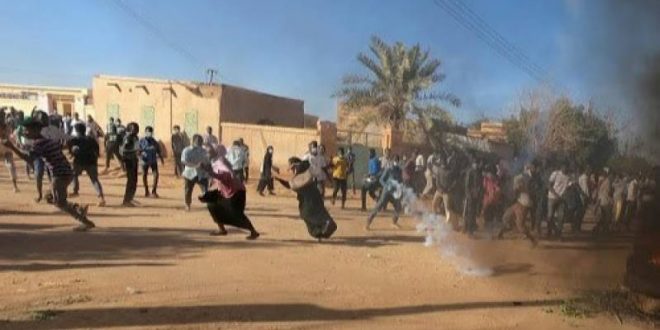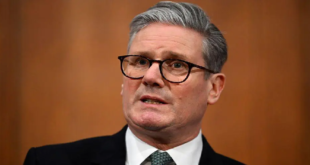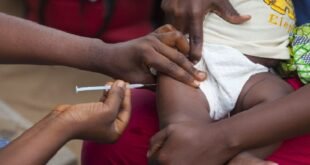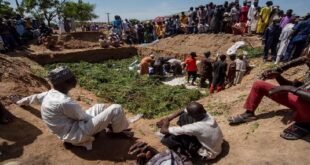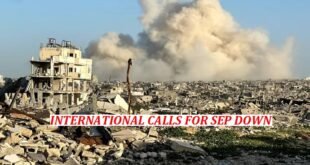17-01-2021
KHARTOUM: Tribal clashes in Sudan’s Darfur region have killed 48 more people in the latest bout of violence, according to state media.
“The death toll from militia attacks in al-Geneina yesterday reached 48,” victims said on Sunday, referring to the capital of West Darfur state and quoting the local branch of the country’s doctors’ union.
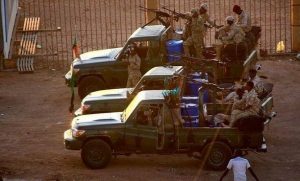 “The bloody events which are still ongoing since Saturday morning [have] also left … 97 wounded.”
“The bloody events which are still ongoing since Saturday morning [have] also left … 97 wounded.”
Saturday’s clashes initially pitted the Massalit tribe against Arab nomads in al-Geneina, about two weeks after the United Nations and African Union ended a 13-year peacekeeping mission in Darfur.
The violence morphed into broader fighting involving armed militias in the area, which left several buildings, including houses, scorched.
Sudan’s Prime Minister Abdalla Hamdok said on Twitter on Saturday he had ordered a “high-profile” delegation, including security services, be sent to West Darfur to follow up on the situation.
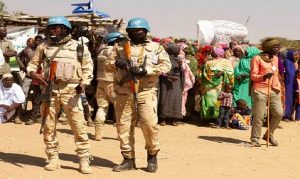 Sources reported from Khartoum, said that displaced people in the Darfur region say that the withdrawal of the hybrid United Nations African Union Mission in Darfur (UNAMID) has “created a vacuum”.
Sources reported from Khartoum, said that displaced people in the Darfur region say that the withdrawal of the hybrid United Nations African Union Mission in Darfur (UNAMID) has “created a vacuum”.
This is “especially because the joint force that was created by the government which includes the police, the military, and the paramilitary rapid force – is a joint force that is not accepted by most of the displaced people” but, Morgan said that “inter-communal violence” is not new to Darfur, even when the UNAMID peacekeeping mission was still active and had a mandate to protect civilians.
The vast Darfur region was the scene of a bitter conflict that erupted in 2003, leaving about 300,000 people dead and 2.5 million displaced, according to the UN.
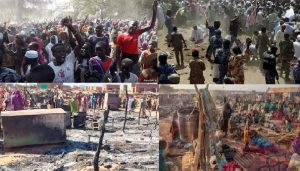 At the time, fighting erupted when ethnic minority rebels rose up against the Arab-dominated government in Khartoum, which responded by recruiting and arming a notorious Arab-dominated militia known as the Janjaweed.
At the time, fighting erupted when ethnic minority rebels rose up against the Arab-dominated government in Khartoum, which responded by recruiting and arming a notorious Arab-dominated militia known as the Janjaweed.
The main conflict has subsided over the years but ethnic and tribal clashes still flare up periodically, largely pitting nomadic Arab pastoralists against settled farmers from non-Arab ethnic groups.
The violence often centres on land and access to water.
Sudan is undergoing a tumultuous political transition after the overthrow of longtime President Omar al-Bashir in April 2019 after mass protests against his rule.
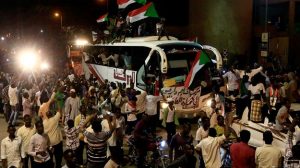 The transitional government, a power-sharing arrangement comprising generals and civilian figures, has pushed to build peace with rebel groups in Sudan’s main conflict zones, including Darfur but two rebel groups refused to join a recent peace deal, including the Sudan Liberation Movement (SLM) faction led by Abdelwahid Nour, which is believed to maintain considerable support in Darfur.
The transitional government, a power-sharing arrangement comprising generals and civilian figures, has pushed to build peace with rebel groups in Sudan’s main conflict zones, including Darfur but two rebel groups refused to join a recent peace deal, including the Sudan Liberation Movement (SLM) faction led by Abdelwahid Nour, which is believed to maintain considerable support in Darfur.
The UNAMID formally ended its operations on December 31 last year.
It plans a phased withdrawal of its 8,000 armed and civilian personnel within six months. (Int’l Monitoring Desk)
 Pressmediaofindia
Pressmediaofindia
